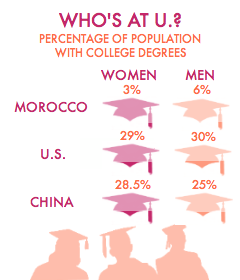
January 2, 2013 | War and Peace
After the Shooting Stops
Life can be even tougher when women vets come home.
By Willa Kendrick
"The civilian world thinks that people who don’t go out at night, who keep their blinds always closed and don’t let people over—that they’re crazy," says a US army veteran who wants to be known just as "Becky." But after painful years spent tamping down the memory of being raped while in the military, Becky now realizes that "the issues I have are typical of PTSD."
Becky came by that hard-won knowledge—and got help for her PTSD—thanks to a Texas-based group created exclusively for women veterans, Grace After Fire. With the majority of U.S. troops now returned from Iraq, and thousands more due home from Afghanistan this year, Grace’s services are needed more than ever. After all, approximately 230,000 women have served in those two wars and make up 15 percent of all American military forces.
"Women process trauma differently than men," says Kim Olsen, a retired Air Force colonel who is CEO of Grace After Fire. "That’s not to say we are any less resilient, or any less strong, but we need different things to get well." Besides suffering from PTSD, women vets also struggle with depression and the aftermath of sexual assault—one study says that one out of every three military women has been raped—while also juggling the demands of being mothers and wives.
"They (large military organizations like Veterans Affairs) were built on a whole different model of a veteran that didn’t include many women,” says Olson. And while the VA and others are "trying to change their model, it’s just not fast enough for all the women rolling in from these two wars." One result of this lag: Women are the fastest-growing segment of homeless vets.
"If you’ve been in an all male environment, in a combat zone, it is hard to transition from being a soldier, which they are, to just being a woman," Olsen explains. "We work on reintegrating the woman back into her family, back into her community, and back into the workplace." Grace does this through their peer-to-peer program, Table Talk, and by connecting women with vital resources.
Table Talk has been particularly effective. Women vets meet in groups led by trained facilitators; over the course of eight weeks they share their personal experiences—and learn that they are not alone. "We give women a safe place to tell their story," explains Olson. "The great line we hear all the time is ‘oh my god I’m not crazy!’"
"Grace After Fire gave me peace about who I am," says Becky. "I feel comfort from knowing that other people went through what I did and they are getting better. Not only are they getting better, but they are helping others, and that’s what I aspire to do."
To learn more about Grace After Fire, go to www.graceafterfire.org